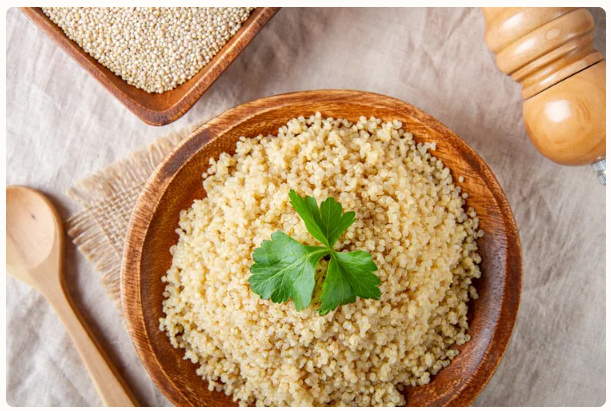Quinoa is a popular gluten-free grain with a rich history. It’s been used as a food for over 8,000 years and was a staple crop of the Incas, an ancient Peruvian civilization.1
Now, quinoa has become popular in many areas of the world, including the U.S., as it’s rich in nutrients like protein, fiber, and magnesium and is naturally gluten-free.
Studies show that eating quinoa may provide several health benefits, including providing a source of important nutrients and improving certain heart disease risk factors.
Here’s what you need to know about quinoa, including its potential health benefits, nutrition, and how to add quinoa to your diet. Though it’s often referred to as a grain, quinoa is actually the edible seeds of the Chenopodium quinoa plant. This is why quinoa is considered a pseudocereal grain
Quinoa is a nutritious carbohydrate source, since it’s rich in several important nutrients, including protein, fiber, folate, magnesium, zinc, and iron.
Fiber benefits digestive health by promoting regular and comfortable bowel movements and nourishing the beneficial bacteria that reside in your digestive tract. Unfortunately, most Americans fall short of the current 28-gram (g) recommended daily fiber intake, which could negatively impact health in a number of ways, such as contributing to constipation, diverticulitis, and other digestive issues. A 1-cup serving of cooked quinoa provides over 5 g of fiber or 18% of the current DV, so it’s a smart way to hit your daily fiber needs













